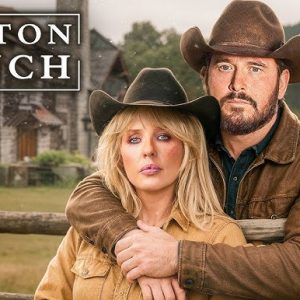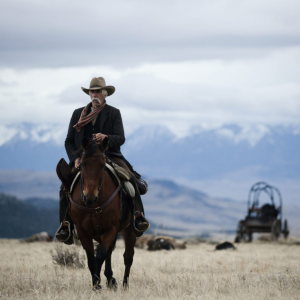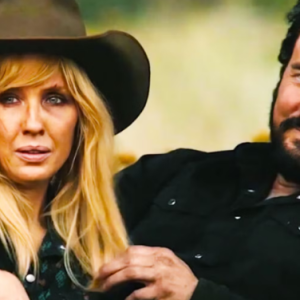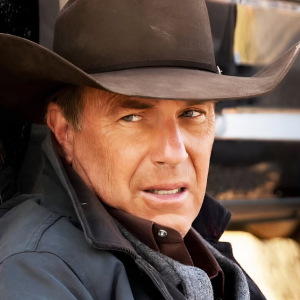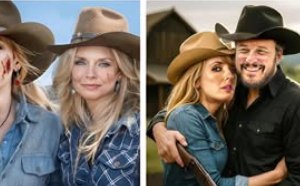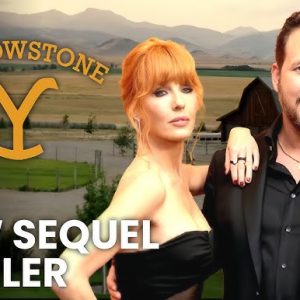The sprawling saga of the Dutton family and their ancestral Yellowstone Dutton Ranch has captivated audiences for years, establishing itself as a cultural phenomenon. As the flagship series draws to a close, significant news has emerged, confirming fan speculation: Kelly Reilly and Cole Hauser are set to reprise their iconic roles as Beth Dutton and Rip Wheeler in a highly anticipated offshoot. This development marks a pivotal shift from continuing the original series with a Yellowstone Season 6, instead signaling a new chapter that, while distinct, promises deep thematic and narrative ties to its predecessor. The proposed title for this new venture, “Dutton Ranch,” strongly hints at the core focus: a strategic evolution of the family’s enduring legacy, deliberately moving beyond the specific challenges that plagued John Dutton’s stewardship of the expansive Yellowstone property.
John Dutton, the stoic patriarch, devoted his life to safeguarding the Yellowstone Dutton Ranch, a heritage stretching back nearly 150 years. His unwavering commitment to tradition and resistance to modernization, while admirable in its intent to preserve a way of life, ultimately rendered the ranch financially unsustainable. Despite leaving behind an immense, tangible legacy in land, his failure to adapt the ranch’s business model to contemporary economic realities proved to be a critical flaw. This became starkly apparent in Yellowstone Season 5’s finale, where his son, Kayce, was faced with the harrowing prospect of selling off vital portions of the land. The sheer scale of the inheritance tax following John’s passing presented an insurmountable financial burden for his children, Beth and Kayce, leaving them with severely limited options to retain what their ancestors had fought so fiercely to secure. In essence, John’s profound dedication to tradition, ironically, threatened to be the very undoing of his family’s future, creating a significant, almost generational, failure that loomed large over his surviving heirs.
The very title “Dutton Ranch” for the upcoming spinoff suggests a conscious effort by Beth to rectify these past mistakes and forge a path toward redemption for her family’s name and their ranching heritage. Throughout Yellowstone Season 5, Beth, with her sharp financial acumen, repeatedly confronted her father about the ranch’s dire economic situation. She tirelessly pointed out that operating a massive enterprise that consistently failed to turn a profit was inherently unsustainable. Her frustration mounted as John, rather than seeking innovative solutions, proposed accruing millions of dollars in loans to lease land in Texas. This plan, necessitated by the discovery that their cattle herd was susceptible to brucellosis unless moved to distant pastures where they wouldn’t require constant hay feeding through the winter, epitomized John’s reactive and traditional approach, starkly contrasting with Beth’s more proactive, business-oriented mindset. She understood that simply maintaining the status quo, even if it meant preserving the land, was a slow march towards financial ruin.
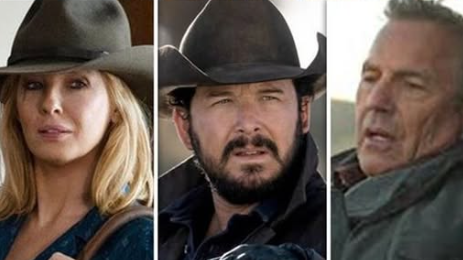
A turning point for Beth, and a clear foreshadowing of the spinoff’s direction, occurred in Yellowstone Season 5’s finale when she made the bold decision to purchase a ranch outside Dillon, Montana. This move, which saw Beth and Rip begin to settle into a new, albeit still cowboy-centric, lifestyle, unequivocally signaled their future commitment to ranching. The “Dutton Ranch” title solidifies this intent, signifying a shift from the grandeur and historical weight of the “Yellowstone” moniker to a more focused, practical, and perhaps more resilient “Dutton Ranch.” It implies a consolidation of family values and a commitment to the fundamental business of ranching, unburdened by the specific, perhaps outdated, operational model of the original Yellowstone Dutton Ranch. This new venture presents Beth with the perfect canvas to apply her formidable financial talents to create a truly successful and self-sustaining ranching enterprise, thereby redeeming her father’s shortcomings as a modern rancher and cementing her and Rip’s place as the new face of the Dutton family in Montana.
Yellowstone Season 5 provided ample hints about Beth’s evolving business strategies, detailing exactly how she might build upon, and crucially improve, her father’s legacy. Beth’s keen analytical mind questioned the very foundation of their family’s income. She probed why, despite the high profitability of a steak on a dinner plate, the ranchers themselves saw so little of that yield. John’s candid response—that ranchers profit from peddling cattle, not the processed meat—illuminated a fundamental inefficiency in the traditional supply chain. This realization sparked in Beth an entrepreneurial drive, suggesting a shift towards vertical integration and direct-to-consumer models.
Her transformative ideas truly began to crystalize during a flashback in Yellowstone Season 5, episode 10, when she traveled to Amarillo, Texas, to see Rip. While at a hotel bar, she gleaned invaluable insights from observing Travis Wheatley’s (Taylor Sheridan) operations at the renowned Four Sixes Ranch. She learned that the Four Sixes not only produced their own distinct vodka, leveraging their brand and resources in an unexpected way, but also engaged in direct-to-consumer meat sales via a dedicated website. This latter revelation captivated Beth, presenting a tangible, viable path to significantly increase profit margins by bypassing intermediaries and connecting directly with end-consumers. The prospect of cutting out the middlemen, refining their product, and selling it directly represented a revolutionary concept for the Duttons, a family steeped in the old ways of simply raising and selling livestock. The final chapter of Yellowstone thus meticulously laid the groundwork, indicating that Beth and Rip’s spinoff would likely explore their implementation of these innovative strategies, taking crucial lessons from their forward-thinking associates in Texas.
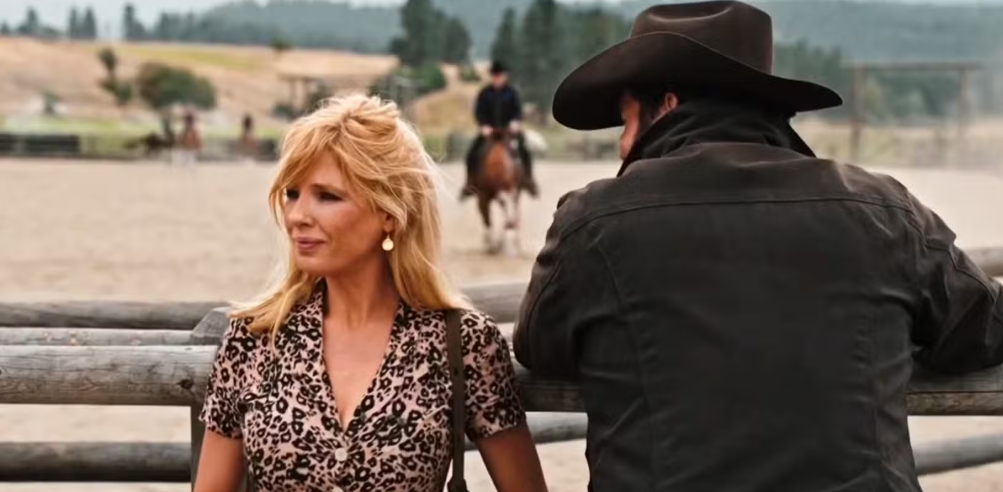
The “Dutton Ranch” spinoff, therefore, holds the promise of exploring compelling themes: the tension between honoring tradition and embracing modernization, the struggle to preserve a way of life by radically reinventing its economic foundation, and the inherent challenges of generational shifts in leadership. Beth, with her sharp intellect and ruthless pragmatism, embodies the new guard, determined to secure the Dutton legacy not through sheer force of will, but through financial solvency and strategic diversification. Rip, ever loyal and deeply rooted in the practicalities of ranch life, represents the bridge between the old ways and the new. His ranching expertise will ground Beth’s ambitious ventures, ensuring that while the business model evolves, the core values and the authenticity of their cowboy lifestyle remain intact. This partnership is crucial: Beth provides the vision and the financial acumen, while Rip provides the hands-on knowledge and the unwavering commitment to the land and the animals.
Ultimately, the Beth and Rip spinoff is poised to be more than just a continuation of beloved characters. It’s an opportunity to provide a satisfying resolution to the economic quandaries that plagued John Dutton, offering a glimmer of hope that the Dutton legacy can, indeed, survive and thrive in a rapidly changing world. By focusing on a more concise, business-oriented “Dutton Ranch,” Beth aims to prove that ranching can be both a revered heritage and a profitable enterprise. Her journey to redeem her father’s mistakes through innovative thinking and strategic adaptation is not just about money; it’s about securing the future for a family whose identity has been inextricably linked to the land for generations. The clean slate of a new ranch, coupled with lessons learned from John’s struggles and modern successes observed elsewhere, positions Beth and Rip to write a compelling new chapter, one that finally secures the Dutton family’s future by marrying age-old traditions with forward-thinking business practices.
